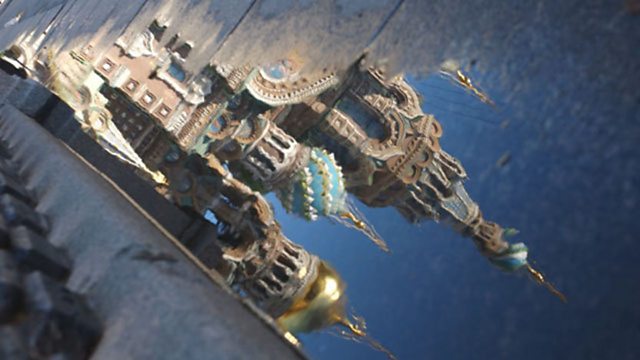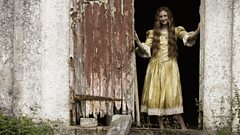Nicolay Yakovlevich Myaskovksy
Donald Macleod explores the life and works of composer Nicolay Myaskovsky.
Donald Macleod starts with the composer's childhood; how his father's army career impacted upon the young and reserved child, as did the extreme religious mania of his aunt, who lived with the family once Myaskovsky's mother died.
Donald Macleod then surveys Myaskovsky's life at the St Petersburg Conservatory, under the tutelage of Rimsky-Korsakov, and Glazunov. He introduces part of the composer's String Quartet No 3, which includes a disguised snub at his tutor Lyadov, spelling out the theme 'Beware of Lyadov'.
Whilst at the Conservatoire, Myaskovsky met Prokofiev, who would become a lifelong friend and champion. After graduation, Myaskovsky established himself as a music critic, writing notable articles on composers such as Beethoven and Medtner.
Myaskovsky's served as an army officer in the First World War, during which time he composed his fourth and fifth symphonies. Shell- shock, and the horrors of war would greatly influence Myaskovsky, who subsequently suffered a breakdown. His music from this point starts to incorporate aspects of political and social change in Soviet Russia, with his Fourth Piano sonata featuring angry clashes and dissonance.
During this period of change, Myaskovsky's father is torn to pieces by a revolutionary mob, and his aunt also later dies. Myaskovsky pours his feelings into his Sixth Symphony, combining French revolutionary themes with images of the migration of the soul from the body.
Donald Macleod explores the turbulent times before the Second World War, with Stalin attacking cultural figures and organisations. The Moscow Conservatoire where Myaskovsky was professor of composition, was renamed the Felix Kon School of Higher Musical Education, with the likes of Myaskovsky himself, Gliere and Gnesin being dismissed. Reading the signs Myaskovsky composed music more in line with Stalin's wishes, such as his village concertos, the 'Collective Farm' symphony, and the 19th Symphony, composed for the popular Red Army Band.
Donald Macleod discusses Myaskovsky's final years, when he not only suffered with stomach cancer, but also with bitterness and resentment induced by a second wave of persecution during Stalin's cultural attacks. Some of the composer's final works - the Second Cello Sonata, the 13th String Quartet and the 27th Symphony - each won him a Stalin Prize. Having asked Shostakovich whether his life's work was pointless, the composer died a few days later in 1950.
Duration:
Credits
| Role | Contributor |
|---|---|
| Presenter | Donald Macleod |
| Unknown | Nikolai Yakovlevich Myaskovsky |
This clip is from
More clips from Composer of the Week
-
![]()
Wrth fynd efo Deio i Dywyn (trad.) arr. Jayne Davies
Duration: 01:46
-
![]()
Lisa l芒n (traditional) , arr. Jayne Davies
Duration: 03:12
-
![]()
Morfydd Owen's Llwyn Owen, arr. Edward-Rhys Harry
Duration: 05:17
-
![]()
Blacklisted!—Sofia Gubaidulina (b 1931), An Incorrect Path
Duration: 01:21






